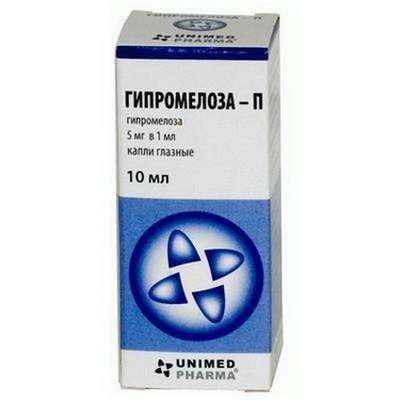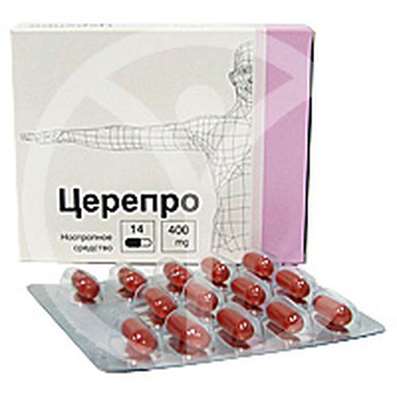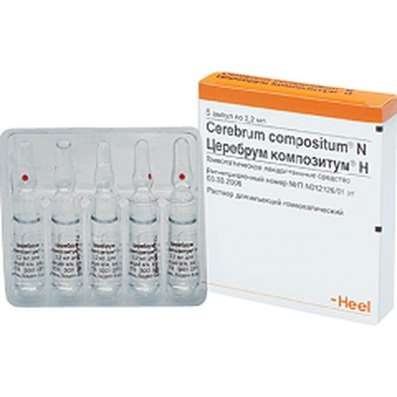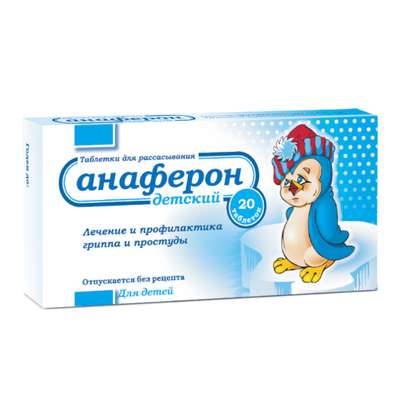Caffeine
21 Oct 2016
Caffeine — alkaloid, a stimulator of the central nervous system, with a wide number of other physiological effects, belongs to group of metilksantin mate (the caffeine extracted from it, sometimes it is called matein), a guarana, Coca, and many others contains in plants, such as coffee, tea (the caffeine extracted from tea, often call theine).
For the pharmacological purposes it is made synthetic and extracted from plants. Contains in energy drinks, as a part of sports food, practically in all fat lossres, many pretraining complexes often meets.
Caffeine effects
The majority of the researches devoted to caffeine were aimed only at those sports which require the increased endurance. Their main conclusion is that to most of such athletes caffeine helps to achieve the best sports results. There are three versions explaining similar reaction. The first of them initially was considered as the most plausible and is connected with a capability of caffeine to stimulate combustion of fat with formation of energy. Caffeine promotes adrenaline development — hormone which accelerates hit of fatty acids in blood and is TsNS stimulator. In case of initial physical activity of a muscle use fatty acids, available to energy development, keeping untouched inventories of a muscular glycogen. Separate scientific research confirmed this theory.
The second version consists in the following: a caffeine is capable to influence directly sceletal muscles, changing the key enzymes or systems regulating process of splitting of carbohydrates in cells. But the research of this theory didn't tap unambiguous results and wasn't finished.
The third version can actually become key for a comprehension of how a caffeine forces you to feel that you executed the smaller volume of work, than actually. According to this version this results from the fact that a caffeine owing to its immediate impact on the central nervous system can provide psychological effect, forcing athletes to feel that they work not so intensively, or somehow as much as possible to enlarge force of muscular contractions. Now we know that a caffeine has no property to get through a hematoencephalic barrier and to interfere with action of an adenosine, the neurotransmitter causing a sleepiness due to retardation of activity of nervous cells. A caffeine is similar structurally to an adenosine and can be bound to adenosine receptors on cerebral cells. But a caffeine doesn't possess the same action, as an adenosine, it doesn't slow down activity of nervous cells. Instead it stimulates production of adrenaline, the hormone improving health during the occupations. Now it is the prevailing version which is most confirmed with scientific research.
Scientists from Institute of scientific information on coffee (ISIC) came to a conclusion that the use from three to five cups of coffee a day prevents formation of beta and amyloid plaques in a brain which are connected with progressing of Alzheimer's disease and dementia. It was established that memory and cognitive functions are positively influenced by two main ingredients of coffee – caffeine and polyphenols which in common promote decrease in inflammatory processes and destruction of cells of a brain, especially in areas of bark and a hippocampus stops process.
Scientists from the USA established that caffeine is capable to block the changes in a brain connected with cocaine addiction. However researches were conducted on rats therefore confirmation of positive result is required on other experimental models.
At the end of 2015 the research of the American scientists about positive influence of consumption of coffee on decrease in risk of development of a breast cancer in women with a mutation in brca1 gene was published in the Nutrigenet and Nutrigenomics magazine.
Mechanism of caffeine effect
According to modern data, in the mechanism of effect of caffeine an essential role is played by his oppressing influence on enzyme a fosfodiesteraza that leads to intracellular accumulation of cyclic adenosinemonophosphate (AMF). Cyclic AMF is considered as mediator substance (a secondary mediator) by means of which physiological effects of various biogenous medicinal substances are carried out. Under the influence of cyclic AMF processes of a glikogenoliz amplify, metabolic processes are stimulated in different bodies and fabrics, including in muscular tissue and in TsNS. Believe that stimulation by caffeine of gastric secretion is connected with increase in maintenance of cyclic AMF in a mucous membrane of a stomach too.
In the neurochemical mechanism of the stimulating effect of caffeine an important role is played by his ability to communicate with specific ("purinovy", or adenosine) brain receptors for which endogenous ligand is the purinovy nucleoside — adenosine. Structural similarity of a molecule of caffeine and adenosine promotes it. As adenosine is considered as the factor reducing processes of excitement in a brain, replacement with his caffeine results in the stimulating effect. At prolonged use of caffeine education in cells of a brain of new adenosine receptors is possible and effect of caffeine gradually decreases. At the same time at the sudden termination of introduction of caffeine, adenosine occupies all available receptors that can lead to strengthening of braking with the phenomena of exhaustion, drowsiness, a depression, etc.
Caffeine and creatine
Contrary to the occurring opinion, caffeine doesn't destroy a creatine molecule, however interaction of caffeine and creatine is still discussed. One researches show positive results in case of a combination of creatine and caffeine, others negative and still finally isn't clear to whom to trust. Summing up modern scientific data, it is possible to come to a conclusion that caffeine really is an antagonist of creatine, however total action will be rather positive, than negative.
For an explanation, it is possible to give an arithmetic example: effect of creatine = 2, effect of caffeine = 2. Creatine + caffeine = 3, (where effect of caffeine = 2, and effect of creatine = 1). Explanation: we won't gain such effect as it was necessary to expect, due to decrease in efficiency of creatine, but nevertheless the total effect will be more.
Thus, caffeine really reduces efficiency of creatine, but using them together we profit more, than from everyone separately. Therefore there is a sense of acquisition of the additives uniting creatine and caffeine in structure in case of good tolerance of the last.
Caffeine in bodybuilding
So far was considered that caffeine isn't especially effective if your sport is connected mainly with force and endurance. But Dr. Larry Sprayet and his colleagues from University Guelf in Ontario are ready to argue with you. They studied influence of caffeine on athletes of strength sports. In one experiment of 14 athletes carried out three approaches of exercise with the maximum intensity. Between approaches they had a rest 6 minutes. The first two approaches lasted 2 minutes, and the third was carried out to complete exhaustion. Participants were tested twice: once with caffeine acceptance, the second — with placebo. During the third approach, having accepted caffeine, they could work longer (4,93 minutes with caffeine against 4,12 minutes with placebo). Caffeine unambiguously increased sports indicators for short term.
Mechanisms of this phenomenon are still up to the end not clear, but researchers could push one possible version. Having taken samples of blood and having made a biopsy of muscular tissue, they found out that caffeine didn't spend inventories of a muscular glycogen as it was supposed earlier.
New advanced researches prove that caffeine is capable to increase force, stimulating emission of noradrenaline from adrenalinic glands and promoting the best reducing muscles. When it occurs, the feeling of physical tension becomes dull, allowing you to lift bigger weight. In general it seems that caffeine is capable to increase gradually force that, certainly, leads to increase in amount of muscle bulk. Caffeine is the efficient "fair" means increasing working capacity. The huge number of scientific experiments shows that it is capable to improve results of work for 22%. And here one more good news: the amount of coffee necessary for improvement of sports results — about 470 ml, or 2 cups, has no the dehydrating effect.
Trained athletes show the best results
Researches also show that caffeine best of all works as force stimulator if you are in good physical shape. The evidence of this fact was obtained as a result of the experiments made among swimmers whose sport is at the same time both anaerobic, and aerobic. Perfectly trained swimmers considerably improved the high-speed indicators after acceptance of 250 mg of caffeine. Unexercised nonprofessional swimmers couldn't show good results. The same group of researchers made other experiment before with unprepared participants who after acceptance of caffeine worked at the exercise bicycle with average degree of intensity. And again caffeine didn't promote improvement of results at unexercised participants. Do not forget take Meldonium for better results.
Caffeine during the competitions
If you want to achieve additional increase in working capacity during the competitions, refuse caffeine or significantly reduce its consumption some days before start to reduce tolerance to it. Thus, when you will enter caffeine into an organism again, gain more expressed effect. Just before start accept 50-200 mg of caffeine from drink, such as coffee (1-2 strong cups) or energy/sports drink (1-2 banks).
More information about caffeine
Contrary to popular belief the caffeine accepted just before loading doesn't promote dehydration. In a research of University of the State of Ohio, the USA, 1997 six cyclists during 3-hour pedalling took sports drinks with caffeine and without caffeine. Researchers found lack of any distinctions in working capacity or amount of urine during loading. Development of urine increased only during rest.
In other research in which 18 healthy men at rest took three various drinks in volume of 1.75 liters of caffeine drink didn't change their water balance.
Researchers from University of Maastricht, the Netherlands, found that cyclists after the long training could fill equally well inventories of liquid both by means of water, and by means of caffeine drink Coca. The research of 2005 executed by University of Connecticut, the USA found out that both caffeine drink, and drink without caffeine Coca supported water balance of athletes (during the periods between trainings) within three next training days. During the training occupations athletes drank water, but filled water balance with either caffeine drink, or drink without caffeine. The further research conducted by the same scientists confirmed that moderate consumption of caffeine didn't increase development of urine in comparison with placebo, and concluded that caffeine doesn't break water-salt balance of an organism.
Application
The cup of coffee (237 ml) contains about 100 mg of caffeine. Observe what will occur, and compare results to the previous indicators when you didn't take some coffee. In general laboratory researches show that consumption of the doses equal to 3 — 6 mg on kilogram of body weight, in 30 — 60 minutes prior to occupations is capable to improve at the same time both force, and endurance at well trained athletes. However the results received in vitro can differ from results which achieve in habitual conditions of the gym.
"Attention" the Best source of caffeine is black tea which also contains other metilksantina responsible for psychophysical activation. One bag contains about 40-50 mg, that is for preparation of the power engineering specialist it is necessary to make about 5 bags (time of insisting about 10 minutes). It isn't necessary to confuse it with chifiry where cooking of tea is made and harmful elements of leaves are extracted.
It is also possible to buy caffeine sodium benzoate in a drugstore. One tablet contains 40 mg of caffeine and 60 mg of benzoate of sodium for caffeine absorption improvement.
Don't forget also that caffeine can aggravate some diseases, such as an ulcer, cardiac diseases, the increased arterial pressure and anemia, without speaking about more serious. Listen to recommendations of the doctor. In addition, don't try to replace with caffeine the natural, reasonable nutritious practicians aimed at improvement of sports indicators.
Product / Content of caffeine, mg/cup
- Instant coffee 60 mg
- Espresso 45-100 mg
- Coffee maker / filter 60-120 mg
- Tea 60 mg
- Green tea 75 mg
- Energy drinks 100 mg
- Coca 40 mg
- Power gel (1 bag) 25 mg
- Dark chocolate (50 g) 40 mg
- Milk chocolate (50 g) 12 mg
Caffeine in sports food
In sports food caffeine is used as an energy accelerator. It has the expressed stimulating effect that allows to increase intensity of a training that in turn leads to acceleration of burning of fatty inventories, and to increase in load of muscles, thereby accelerating their growth. Helps to concentrate on technology of exercises better. Caffeine is a part of many zhiroszhigatel, creatine with transport system, pamping-complexes, energy drinks and other additives.
Practically each producer of sports food issues additives from guarany. Actually it is long the operating caffeine with some other stimulators. Guarana is absolutely legal and has low cost that does it to one of the most popular tonics.
Also caffeine is present at structure of the majority of pretraining complexes and zhiroszhigatel. The most popular of them:
- NO-Xplode from BSN
- Jack3d (USP Labs)
- SuperPump250 from Gaspari Nutrition
- Universal - Animal Cuts
- NO Shotgun (VPX)
- SHRED-ULTRA from Millennium Sport Technologies (MST)
The most optimum time of acceptance of sports additives with caffeine - in 30 minutes prior to a training. Practically all fat losses show the maximum effect in case of the use before a training.
Recommended doses of caffeine
Optimum doses of caffeine depend in many respects on physiological features of the person and accustoming. In case of the systematic use caffeine - the containing drinks and additives raises tolerance of an organism, in this case rather high doses of caffeine of 200-400 mg are easily transferred. At some people symptoms of overdose begin already with a dose of 100 mg. Therefore all caffeine - the containing additives should begin to be accepted with gradual increase in a dose.
Side effects of caffeine
Side and cumulative effects of caffeine are visually illustrated in the drawing. Pregnant women and nursing mothers shall avoid acceptance caffeine - the containing sports additives. . Aged people are more senior 50 shall accept with extra care sports food with caffeine. In case of serious side effects stop acceptance of a product.
Popular belief that a caffeine is especially dangerous to heart as it causes its "overload". However in researches it wasn't accurately defined that the stimulating influence of a caffeine on heart it is possible to regard side effect. Besides this substance dilates coronary vessels and improves rheological properties of a blood that can even reduce risk of development of coronary heart disease, an infarct and other diseases. It is necessary to emphasize that not the use of this substance, but abuse and an over dosage is dangerous.
About harm of coffee
The daily use of caffeine leads to a nervous breakdown and decrease in intellectual and physical working capacity sooner or later. Even very healthy people aren't recommended to drinks with coffee more often than 2 times a week. Caffeine is a strong stimulator of gastric secretion: it increases secretion of all digestive glands and density of gastric juice that promotes development of gastritis and an exacerbation of stomach ulcer. Caffeine and other alkaloids of coffee sharply accelerate advance of food on digestive tract — as a result food doesn't manage to be digested completely. There are processes of rotting and fermentation in intestines. For this reason it isn't necessary to wash down food with tea or coffee. If to take drinks with coffee, then strictly on an empty stomach, at least for 1 h to food — as it is accepted in many countries.
Additional information
Caffeine — the alkaloid which is contained in tea leaves (about 2%), coffee seeds (1 — 2%), cocoa seeds, kolas; also it can be received in the synthetic way. On a structure and pharmacological properties caffeine is close to theobromine and a teofillin; all three called alkaloids concern to group of metilksantin, but from them the strongest exciting impact on TsNS is exerted by caffeine. Has smaller effect teofellin, smaller — theobromine; teofellin stimulates warm activity and a diuresis stronger, effect of theobromine is less expressed, it is even less — caffeine. Due to these distinctions in action force caffeine is used mainly as TsNS stimulator.
Caffeine strengthens and regulates processes of exaltation in a cortex of a big brain; in the corresponding doses it strengthens positive conditioned reflexes and increases physical activity. The stimulating action leads to rising of mental and physical working capacity, decrease of fatigue and sleepiness. High doses can lead to attrition of nervous cells, however. Effect of caffeine (as well as other psychogic agents) substantially depends on type of higher nervous activity; therefore dosage of a caffeine has to be made taking into account specific features of nervous activity. A caffeine weakens effect of hypnotic drugs and drugs, increases reflex excitability of a spinal cord, excites the respiratory and vasomotor centers.
In the neurochemical mechanism of the stimulating effect of caffeine an important role is played by its ability to be bound with specific (purine or adenosine) brain receptors for which endogenic ligand is the purine nucleoside — an adenosine. Structural similarity of molecules of a caffeine and adenosine promotes it. As the adenosine is considered as the factor reducing processes of exaltation in a brain, replacement with its coffeine results in the stimulating effect. At prolonged use of a caffeine education in cells of a brain new receptors is possible that leads to gradual decrease of effect of caffeine. At the same time at the sudden termination of administration of caffeine the adenosine binds all available receptors that can lead to intensifying of inhibition with the phenomena of a fatigue, a sleepiness, a depression, etc.
The Belgian research laboratory "Nestec" developed new drug of a caffeine of the prolonged action. This drug of the prolonged action allows to prolong considerably the period of the stimulating effect of caffeine, keeping at the same time such concentration of a caffeine in an organism which doesn't cause a side effect. Researches show that reception of 300 mg of new drug gives the chance to do without dream during 24 — 48 h. At the same time there is no essential accumulation of a caffeine in body tissues, and the possibility of pathological effect of this drug on cardiovascular system is excluded.

 Cart
Cart





